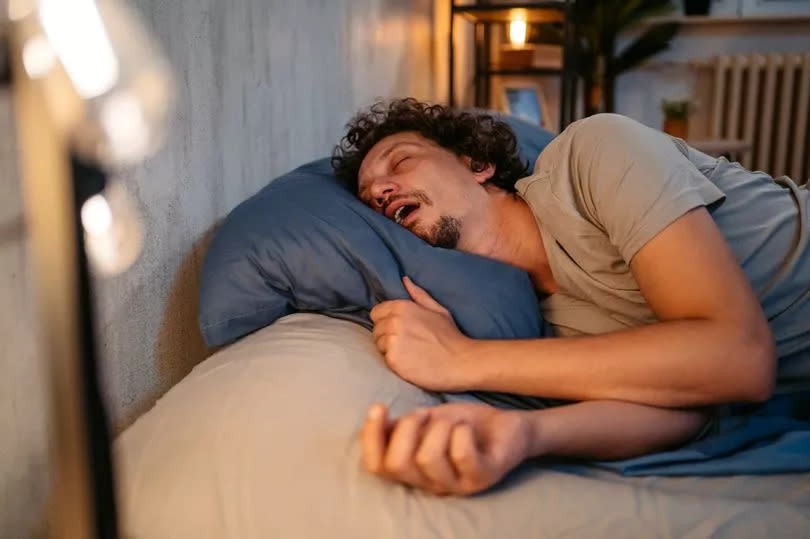DWP could pay £737 a month for common health condition - if you have diagnosis

People suffering from a common health issue could be entitled to a monthly payment of £737 from the Department of Work and Pensions (DWP).
While snoring is a nightly nuisance for many, it can sometimes develop into a more serious condition known as sleep apnoea, which can greatly affect your quality of life. Those diagnosed with this condition may be eligible for the Personal Independence Payment (PIP). Snoring is linked to sleep apnoea, which is recognised as a disability.
Sleep apnoea can be categorised as a disability due to its negative impact on your daily life. Besides experiencing severe tiredness throughout the day due to poor sleep quality, it can lead to a range of other health conditions.
If you think that your snoring is adversely affecting your quality of life, it's vital to get a proper diagnosis from a healthcare professional. Once diagnosed, you may be able to claim PIP reports the Manchester Evening News..
So, what exactly is sleep apnoea?
The NHS describes sleep apnoea as a condition where your breathing repeatedly stops and starts while you're asleep. The most common type is known as obstructive sleep apnoea (OSA).
Symptoms of sleep apnoea mainly occur during sleep and include interrupted breathing, gasping, snorting or choking noises, frequent waking up, and loud snoring. During the day, you might also experience extreme fatigue, difficulty concentrating, mood swings, or headaches in the morning.
The NHS has stressed the importance of treating sleep apnoea due to its potential to lead to more serious complications. These include type 2 diabetes, heart disease, a higher risk of stroke, high blood pressure, depression or mood changes, and an increased likelihood of serious accidents caused by fatigue, such as car crashes.
What benefits could you be eligible for?
If you're living with sleep apnoea, you may be eligible to claim Personal Independence Payments (PIP). This benefit can help with extra living costs if you have a long-term physical or mental health condition or disability that makes certain daily tasks or mobility difficult.
PIP is not affected by your employment status, savings, or receipt of most other benefits. It's tax-free and the amount you receive isn't influenced by your income or savings.
PIP comprises two components; the first is for those who need help with daily tasks, while the second is for those who require assistance with mobility. Whether you qualify for one or both parts and the amount you receive depends on the level of difficulty you experience with daily tasks and mobility.
Eligibility and how to claim
For individuals on the higher weekly rate, the combined total weekly payment amounts to £184.30, which equates to approximately £737 per month.
The DWP doesn't outline specific conditions that make individuals eligible for PIP, it's based on how your daily life is affected. You might qualify for Personal Independence Payment (PIP) if all the following conditions are met:
You're 16 or over. You have a long-term physical or mental health condition or disability. You struggle with certain daily tasks or mobility. You expect these difficulties to persist for at least 12 months from when they began.
You must also be under the State Pension age if you've not received PIP before. You can check your eligibility and apply here.

 Yahoo News
Yahoo News 
